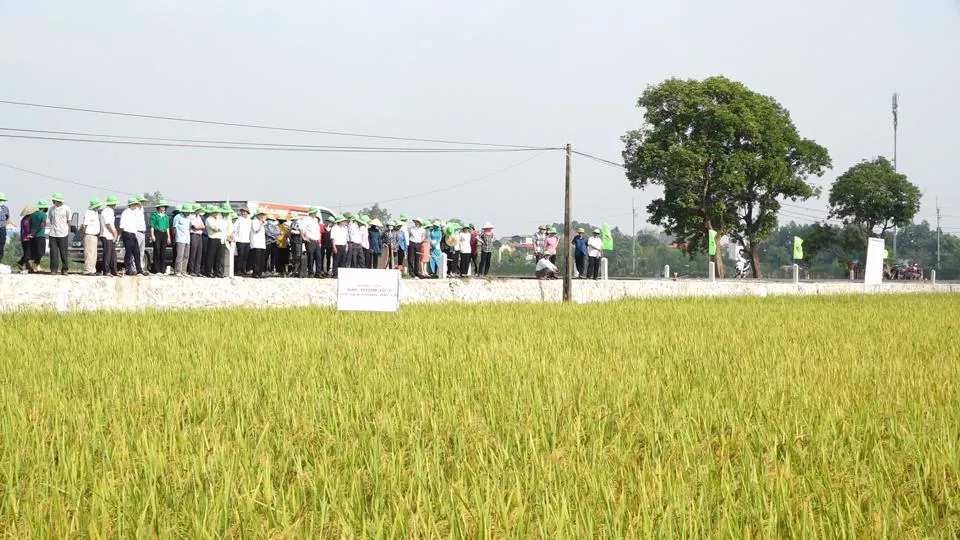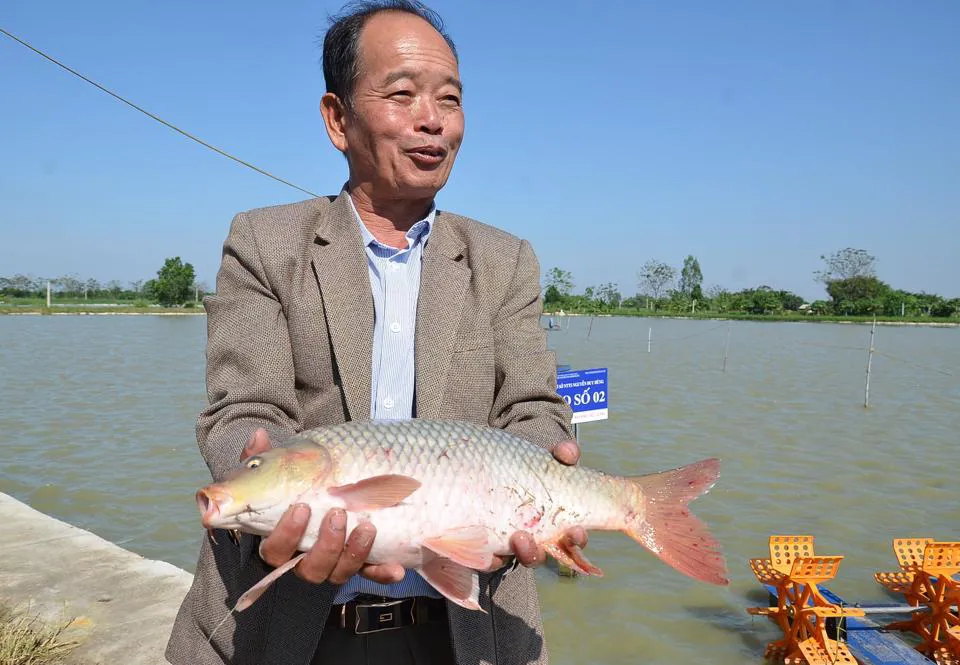Hanoi promotes high-quality organic farming models
It is evident that organic production methods yield better economic returns and enhance the quality, competitiveness, and value of agricultural products.
Hanoi has successfully implemented several organic farming models that align with modern agricultural development trends and have brought significant economic benefits to farmers.
| Organic rice cultivation model in Thanh Van Commune, Thanh Oai District, Hanoi. Photos: Anh Ngoc/The Hanoi Times |
In 2022, the Hanoi Agricultural Extension Center launched an organic rice production model on 20 hectares of land in Thanh Van Commune and Kim Bai Town, Thanh Oai District, according to which the production process involves the use of organic fertilizers and biological products instead of chemical fertilizers and pesticides in the rice area.
A yield of 5,730 kg per hectare using organic production has been achieved with this approach. This model is expected to be replicated in other communities in the district this year.
Also, last year, the Center helped the family of Cao Xuan Truong in Cam Linh commune, Ba Vi district, to practice VietGAP-certified organic farming and safe aquaculture on a large scale. The farm raises carp and tilapia on an area of one hectare.
The farmers were closely supervised by agricultural extension officers to ensure that they followed a safe breeding process that included proper care, management, harvesting, and limited use of antibiotics, as well as treating the pond environment with probiotics.
| Organic carp raised from a safe aquaculture production model at Trung Tu Commune, Ung Hoa District. |
"Once tested and certified according to VietGAP safety standards, we can start selling organic seafood products in supermarkets and shops, which are 10-20% more valuable than conventionally farmed products," Truong said.
Vu Thi Huong, director of the Hanoi Agricultural Extension Center, stressed that organic production is a rigorous and lengthy process that requires attention to soil, water, and air quality and proper care.
Huong added that the center supports localities in building VietGAP and organic agricultural extension models, aiming to create high-quality organic agricultural products that transform agricultural production from quantity to quality and value.
"It has been proven that organic production methods yield better economic returns and improve the quality, competitiveness, and value of agricultural products. In addition, such an approach helps farmers shift their production mindset toward safety, sustainability, and ecological harmony," Huong said.
Nguyen Manh Phuong, deputy director of the Hanoi Department of Agriculture and Rural Development, said Hanoi had allocated 2,000 hectares of land for organic farming and 10.1 hectares for organic aquaculture.
"Hanoi's agriculture sector is encouraging farmers to adopt organic farming and animal husbandry by providing support programs and preferential loans," Phuong said.
Hanoi has set a target to achieve 1.5-2% of organic farmland and 1-2% of organic livestock products by 2025, as outlined in Plan No. 220/KH-UBND, issued by the Hanoi People's Committee for the Development of Organic Agricultural Production in 2022-2030.
To achieve this goal, Phuong expected the agricultural sector to develop organic agricultural production models with advanced technical processes and strict control, with products certified according to national and international standards for organic agriculture.
"Localities need to develop specific plans that comprehensively support farmers, cooperatives, and businesses, covering production infrastructure, technical training, and branding," Phuong added.
According to Phuong, the Hanoi Department of Agriculture and Rural Development will work with localities to identify concentrated areas for producing organic agricultural products that meet market demand and are suited to local conditions.
The agency will also promote and identify markets for wider product consumption by organizing fairs and online platforms. It will also support cooperatives and businesses in distributing organic products through modern and export-oriented channels, Phuong said.













